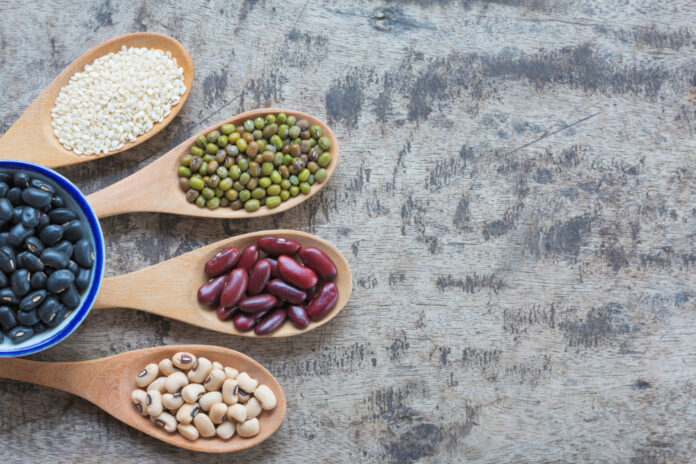Achieving a healthy and lean body isn’t just about hitting the gym; it’s also about fueling your body with the right nutrients. Protein plays a vital role in building and repairing tissues, supporting immune function, and maintaining muscle mass. Incorporating lean protein sources into your diet can help you meet your health goals without adding unnecessary fats or calories.
Understanding Lean Protein
Lean proteins are characterized by their low fat, particularly saturated fat, and cholesterol content. Consuming lean protein is beneficial for heart health and overall wellness. According to the USDA, for a protein to be considered lean, it must have less than 10 grams of fat, 4.5 grams or less of saturated fat, and less than 95 milligrams of cholesterol per 3.5-ounce serving.
Top Animal-Based Lean Protein Sources
1. Skinless Poultry
Skinless chicken and turkey breasts are excellent sources of lean protein. They provide high-quality protein with minimal fat.
- Chicken Breast: A 3.5-ounce serving offers about 31 grams of protein.
- Turkey Breast: Similar in nutritional value to chicken, it’s versatile and easy to prepare.
Including skinless poultry in your diet supports muscle maintenance and can aid in weight management.
2. White Fish
White-fleshed fish like cod, tilapia, and haddock are lean, providing high protein without the extra fat.
- Tilapia: Low in fat and provides about 26 grams of protein per 3.5-ounce serving.
Adding white fish to your meals not only boosts protein intake but also offers essential nutrients like vitamin B12 and selenium.
3. Lean Beef Cuts
Choosing lean cuts of beef, such as tenderloin, sirloin, or round, ensures you get the protein benefits without excessive fat.
- Sirloin Steak: A 3.5-ounce serving contains about 25 grams of protein.
Opting for lean beef helps you enjoy red meat responsibly.
4. Pork Tenderloin
Pork tenderloin is one of the leanest cuts of pork, rich in protein and nutrients like B vitamins.
- Pork Tenderloin: Offers about 23 grams of protein per 3-ounce serving.
Incorporate lean pork into your diet for variety and nutrition.
5. Shrimp
Shrimp is low in fat and calories but high in protein.
- Shrimp: Provides approximately 20 grams of protein per 3-ounce serving.
Including shrimp can add diversity to your lean protein options.
Top Plant-Based Lean Protein Sources
1. Legumes
Beans, lentils, and peas are excellent sources of plant-based protein and fiber.
- Lentils: About 18 grams of protein per cooked cup.
- Chickpeas: Around 15 grams of protein per cooked cup.
Adding legumes to your meals supports heart health and provides essential nutrients.
2. Tofu and Tempeh
Tofu and tempeh are soy products that are complete proteins, meaning they contain all nine essential amino acids.
- Tofu: Contains about 10 grams of protein per half-cup serving.
Using tofu as a meat substitute can enhance your intake of lean protein.
3. Quinoa
Quinoa is a grain that’s also a complete protein.
- Quinoa: Provides about 8 grams of protein per cooked cup.
Incorporate quinoa into salads or as a side dish for a protein boost.
4. Nuts and Seeds
Almonds, chia seeds, and flaxseeds offer protein along with healthy fats.
- Chia Seeds: Approximately 5 grams of protein per ounce.
Snacking on nuts and seeds can help meet your daily protein needs.
Dairy-Based Lean Proteins
1. Greek Yogurt
Greek yogurt is higher in protein compared to regular yogurt.
- Nonfat Greek Yogurt: Offers about 17 grams of protein per 6-ounce serving.
Starting your day with Greek yogurt can keep you feeling full and satisfied.
2. Low-Fat Cottage Cheese
Cottage cheese is rich in casein protein, which digests slowly.
- Cottage Cheese: Contains about 28 grams of protein per cup.
Including cottage cheese in snacks or meals can aid muscle recovery.
3. Low-Fat Milk
Milk provides high-quality protein along with calcium and vitamin D.
- Skim Milk: Has about 8 grams of protein per cup.
Choosing low-fat milk supports bone health without added fat.
Benefits of Lean Protein
Consuming lean protein provides numerous health advantages:
- Heart Health: Reduces intake of saturated fats, lowering the risk of heart disease.
- Muscle Maintenance: Supports muscle repair and growth, especially post-exercise.
- Weight Management: Enhances satiety, helping control appetite and calorie intake.
A diet rich in lean proteins can contribute to overall well-being and fitness.
Tips for Incorporating Lean Protein
- Diversify Your Sources: Combine animal and plant proteins for a full amino acid profile.
- Opt for Fresh Over Processed: Fresh proteins contain fewer additives and excess sodium.
- Mindful Preparation: Use cooking methods like grilling, baking, or steaming instead of frying.
- Snack Smart: Keep protein-rich snacks like nuts or Greek yogurt on hand.
Where to Find Quality Lean Proteins
- Grocery Stores: Look for cuts labeled “loin” or “round” for lean meats.
- Farmers’ Markets: Fresh, locally sourced proteins may offer higher quality.
- Online Retailers: Many platforms sell lean protein options with the convenience of home delivery.
Conclusion
Incorporating lean protein into your diet is a strategic way to support a healthy and lean body. Whether you prefer animal-based proteins like skinless poultry and fish or plant-based options like legumes and tofu, there’s a wide array of choices to suit your taste and nutritional needs. By focusing on nutritious, low-fat protein sources, you can enhance your health, support muscle growth, and aid in weight management.
Remember, balance is key. Pair your proteins with plenty of fruits, vegetables, whole grains, and healthy fats to ensure a well-rounded and satisfying diet.
Note: Always consult with a healthcare professional or a registered dietitian before making significant changes to your diet, especially if you have underlying health conditions.


